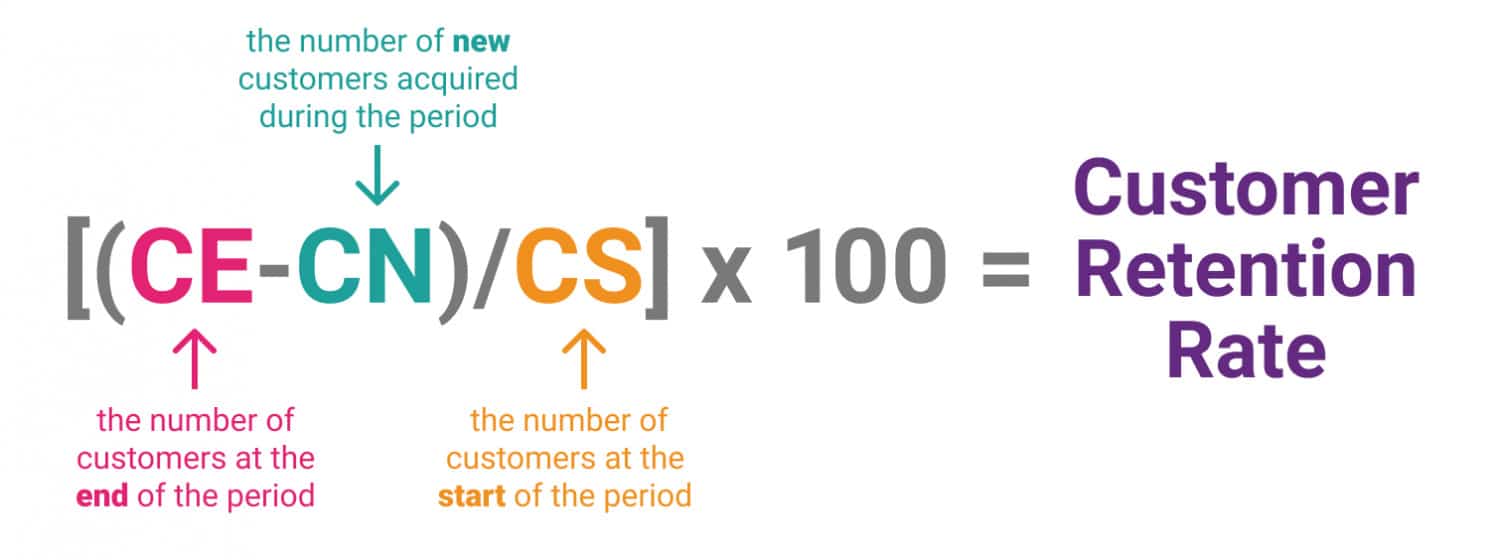Bach Hoa Hang Nga: Your Trusted Source for Quality Products
Explore a wide range of quality products and insightful articles.
Loyalty Retention Analytics: Your Crystal Ball for Predicting Customer Behavior
Unlock the secrets of customer loyalty! Discover how retention analytics can predict behavior and boost your business success today.
Understanding Loyalty Retention Analytics: Key Metrics to Track Customer Behavior
In today's competitive market, loyalty retention analytics has become an essential toolkit for businesses aiming to enhance customer engagement and longevity. Understanding the behaviors that drive customer loyalty requires tracking a variety of key metrics. These metrics include Customer Lifetime Value (CLV), which predicts the total revenue a business can expect from a customer throughout their relationship, and Churn Rate, which reveals the percentage of customers who stop engaging with your brand over a given period. By analyzing these metrics, companies can identify trends and tailor their marketing strategies effectively to improve retention rates.
Another critical aspect of loyalty retention analytics is monitoring Net Promoter Score (NPS), a gauge of customer satisfaction and likelihood to recommend your brand to others. Additionally, customer feedback and purchasing patterns provide insights into preferences and pain points that can influence retention strategies. Implementing robust analytics to track these metrics not only helps in refining your loyalty programs but also paves the way for an enhanced customer experience that fosters longer relationships and drives repeat business. To maximize the benefits, businesses should regularly review these metrics and adapt their approaches accordingly.

Counter Strike is a popular first-person shooter game that emphasizes teamwork and strategy. Players can engage in intense matches where they can choose to play as terrorists or counter-terrorists. For those looking to enhance their gaming experience, using a clash promo code can unlock various bonuses and features.
How Predictive Analytics Can Enhance Customer Retention Strategies
Predictive analytics has revolutionized the way businesses approach customer retention strategies. By analyzing historical data and identifying patterns, companies can gain insights into customer behavior, preferences, and potential churn risks. For instance, businesses can segment their customer base to understand which groups are more likely to leave and tailor their marketing efforts accordingly. This targeted approach not only saves resources but also enhances the effectiveness of retention strategies, leading to higher customer satisfaction and loyalty.
Moreover, implementing predictive analytics allows companies to anticipate customer needs before they arise. By leveraging machine learning algorithms and advanced statistical techniques, businesses can forecast trends and identify opportunities for personalized engagement. For example, if analytics indicate that a specific customer is likely to disengage, companies can proactively offer incentives or personalized communication to address potential concerns. This level of foresight not only strengthens relationships with existing customers but also promotes a brand image that values customer satisfaction.
What Factors Influence Customer Loyalty and How Can Data Help?
Understanding the factors that influence customer loyalty is crucial for businesses looking to establish lasting relationships with their clients. Key factors include product quality, customer service, brand reputation, and emotional connection. Product quality ensures that customers receive value for their money, while exceptional customer service creates positive experiences that encourage repeat purchases. Moreover, a strong brand reputation fosters trust and loyalty, as customers prefer to engage with companies they believe are ethical and reliable. Finally, an emotional connection can be established through personalized experiences and engagement, solidifying customer loyalty in a crowded marketplace.
Data plays a pivotal role in enhancing customer loyalty by providing insights into customer preferences and behaviors. By utilizing data analytics, businesses can segment their audiences and tailor marketing efforts to meet the unique needs of different customer groups. For instance, customer feedback and purchase history can inform loyalty programs that offer rewards and incentives, further encouraging repeat business. Additionally, predictive analytics can help companies anticipate customer needs and improve their offerings, which in turn strengthens loyalty. Embracing a data-driven approach not only allows businesses to enhance the customer experience but also enables them to build a loyal customer base that contributes to long-term success.